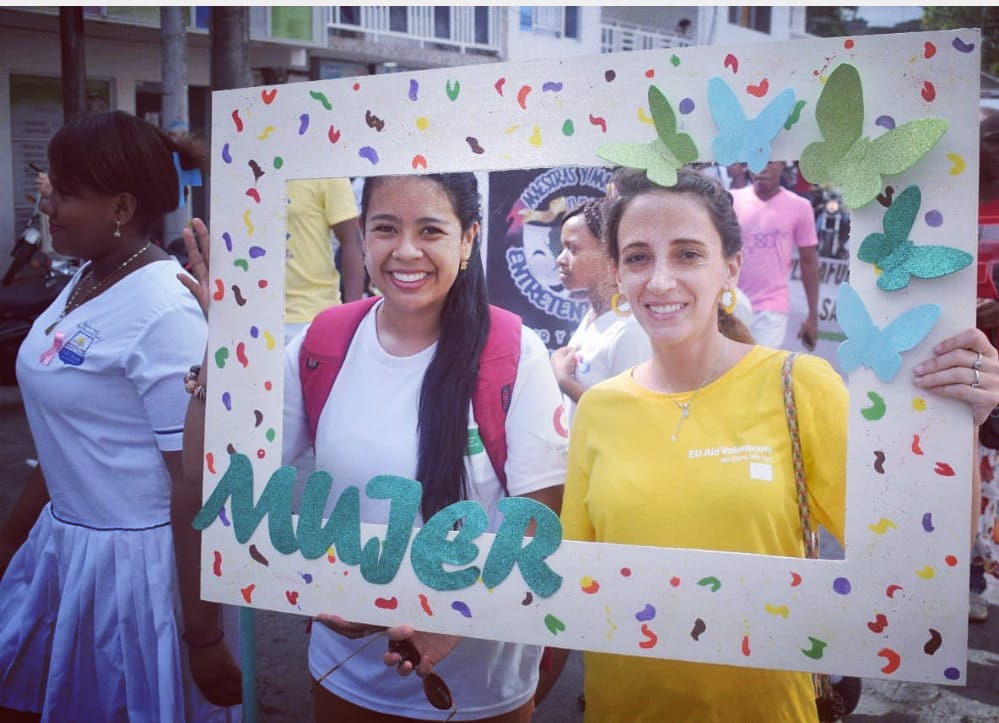Five stages of repatriation
Debora Lucque
“Don’t worry! Senegal is quite safe so no risk of repatriation” is one of the messages I kept from the induction training that took place in Madrid, a few days before leaving for Senegal.
The country is quite safe all right. However, little did we know that the risk of being repatriated would not only exist but also become reality. Of course, no one could have ever foreseen that a pandemic was going to wreak havoc on the entire world.
Whenever I go back to the repatriation episode, I can’t help but think of that phrase. At first, I thought my brain remembered it as a perverse way to mock me. I was mistaken. By engraving the phrase and the episode in my memory, my brain simply wanted them to be proof of how even the least expected things can happen. “You better be prepared for anything, you know, just in case” is the underlying message. However, such epiphany would come only later, at the very end of what I now call the five (5) stages of repatriation.
Not so long ago I heard about the Kübler – Ross grief cycle, according to which people who suffer a loss go through five (5) stages: denial, anger, bargaining, depression, acceptance. The model ruminated in my mind for a while until I started to find some similarities with my recent personal experience. Had I gone through a similar cycle myself? Indeed, I did.
There was denial. “Repatriation? Surely, it’s not happening. The situation is not that serious! I won’t leave”.
There was anger, but mostly frustration. “Why is this happening right now?” “Can’t it wait some more days?” “I am being robbed of my last month!”
Afterwards, numbness came. Packing, checking in, showing my passport, getting on and off the planes were all actions I was not aware of, as if I had completely detached from my body. Somehow, I had switched to autopilot mode.
A week or so after having returned home, the 4th stage kicked in: nostalgia, where anything would remind me of my life in Kolda. “This was the time of the day where I would sit on the terrace and watch the sunset.” “I can’t believe I am missing yassa poulet, and thiebou dienne!” “It’s so quiet here.” The familiar background noises, all of a sudden, had disappeared. The baa, the calls to prayer, the ding ding ding the jakartas would make when turned off, the sounds of the bustling daily market, all of it was gone.
Finding closure is not easy, especially when you don’t get the chance to properly say goodbye. But in the end, I reached the last stage: acceptance. I accepted. I let go. I readjusted to the life back home, to the new normal pandemic-times lifestyle. And eventually, I moved on.
Being repatriated for whatever reason it’s never easy. It’s difficult to be prepared for the eventuality of leaving before time. You don’t really think of it as a possibility, especially if you are deployed in a low-risk country. At least, I know it never occurred to me.
Now that a couple of months have passed, I see my repatriation not only as a cautionary tale, but also as one of the most important lessons learnt thus far as a EU AID Volunteer. In the humanitarian and in the development field, your plans are going to be derailed hundreds of times. Don’t take it personally. It’s just the way it is. You might as well try and be prepared to face the unexpected.










Dejar un comentario
¿Quieres unirte a la conversación?Siéntete libre de contribuir!